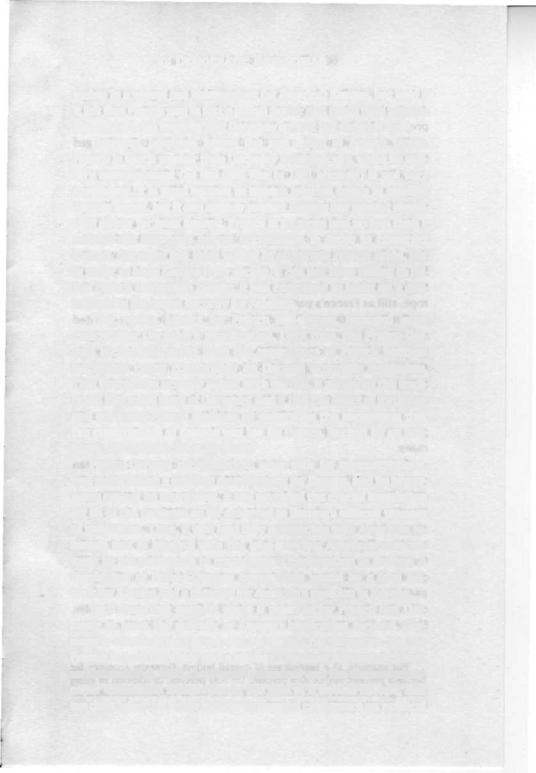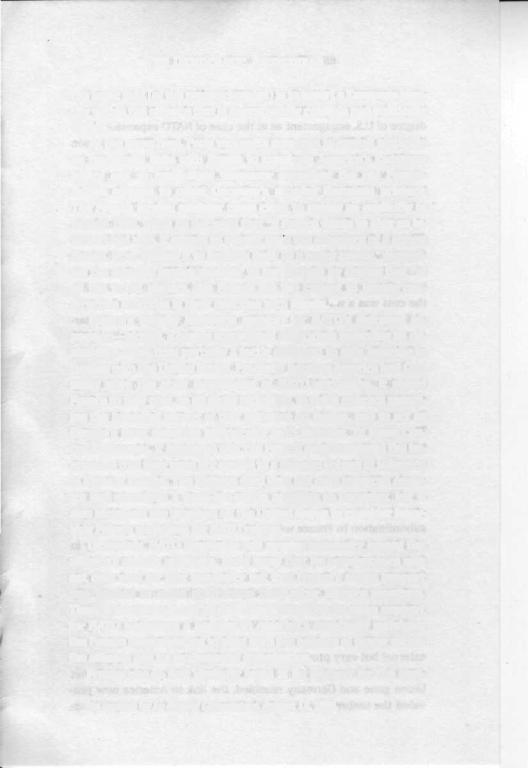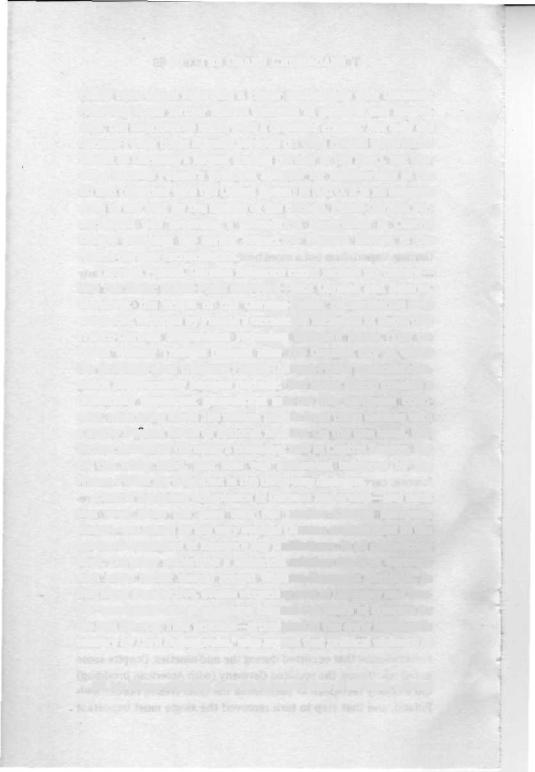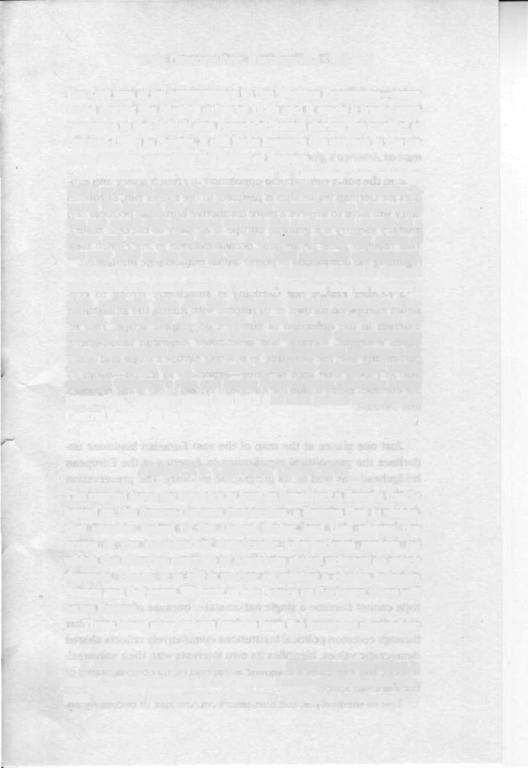
Grand_Chessboard
.pdf
THE DEMOCRATIC BRIDGEHEAD 63
France's global ambitions were also expressed through its determined efforts to sustain a special security role in most of the Francophone African countries. Despite the loss, after prolonged combat, of Vietnam and Algeria and the abandonment of a wider empire, that security mission, as well as continued French control over scattered Pacific islands (which have provided the venue for controversial French atomic tests), has reinforced the conviction of the French elite that France, indeed, still has a global role to play, despite the reality of being essentially a middle-rank postimperial European power.
All of the foregoing has sustained as well as motivated France's claim to the mantle of European leadership. With Britain self-mar- ginalized and essentially an appendage to U.S. power and with Germany divided for much of the Cold War and still handicapped by its twentieth-century history, France could seize the idea of Europe, identify itself with it, and usurp it as identical with France's conception of itself. The country that first invented the idea of the sovereign nation-state and made nationalism into a civic religion thus found it quite natural to see itself—with the same emotional commitment that was once invested in "la patrie"—as the embodiment of an independent but united Europe. The grandeur of a French-led Europe would then be France's as well.
This special vocation, generated by a deeply felt sense of historical destiny and fortified by a unique cultural pride, has major policy implications. The key geopolitical space that France had to keep within its orbit of influence—or, at least, prevent from being dominated by a more powerful state than itself—can be drawn on the map in the form of a semicircle. It includes the Iberian Peninsula, the northern shore of the western Mediterranean, and Germany up to East-Central Europe (see map on page 64). That is not only the minimal radius of French security; it is also the essential zone of French political interest. Only with the support of the southern states assured, and with Germany's backing guaranteed, can the goal of constructing a unified and independent Europe, led by France, be effectively pursued. And obviously, within that geopolitical orbit, the increasingly powerful Germany is bound to be the most difficult to manage.
In the French vision, the central goal of a united and independent Europe can be achieved by combining the unification of Europe

64 THE GRAND CHESSBOARD
Prance's and (iermaiiy's Geopolitical
Orbits a! Special Interest
French ortnt (J Jpsoal IMMMI
Gsmm oiOfl of spues! inlsiesl
under French leadership with the simultaneous but gradual diminution of the American primacy on the continent. But if France is to shape Europe's future, it must both engage and shackle Germany, while also seeking step-by-step to strip Washington of its political leadership in European affairs. The resulting key policy dilemmas for France are essentially twofold: how to preserve the American security commitment to Europe—which France recognizes is still essential—while steadily reducing the American presence; and how to sustain Franco-German partnership as the combined politicaleconomic engine of European unification while precluding German leadership in Europe.
If France were truly a global power, the resolution of these dilemmas in the pursuit of France's central goal might not be difficult. None of the other European states, save Germany, are endowed with the same ambition or driven by the same sense of mission. Even Germany could perhaps be seduced into acceptance of French lead-

THE DEMOCRATIC BRIDGEHEAD 65
ership in a united but independent (of America) Europe, but only if it felt that France was in fact a global power and could thus provide Europe with the security that Germany cannot but America does.
Germany, however, knows the real limits of French power. France is much weaker than Germany economically, while its military establishment (as the Gulf War of 1991 showed) is not very competent. It is good enough to squash internal coups in satellite African states, but it can neither protect Europe nor project significant power far from Europe. France is no more and no less than a middle-rank European power. Accordingly, in order to construct Europe, Germany has been willing to propitiate French pride, but in order to keep Europe truly secure, it has not been willing to follow French leadership blindly. It has continued to insist on a central role in European security for America.
That reality, painful for French self-esteem, emerged more clearly after Germany's reunification. Until then, the Franco-Ger- man reconciliation did have the appearance of French political leadership riding comfortably on German economic dynamism. That perception actually suited both parties. It mitigated the traditional European fears of Germany, and it had the effect of fortifying and gratifying French illusions by generating the impression that the construction of Europe was led by France, backed by an economically dynamic West Germany.
Franco-German reconciliation, even with its misconceptions, was nonetheless a positive development for Europe, and its importance cannot be overstated. It has provided the crucial foundation for all of the progress so far achieved in Europe's difficult process of unification. Thus, it was also fully compatible with American interests and in keeping with the long-standing American commitment to the promotion of transnational cooperation in Europe. A breakdown of Franco-German cooperation would be a fatal setback for Europe and a disaster for America's position in Europe.
Tacit American support made it possible for France and Germany to push the process of Europe's unification forward. Germany's reunification, moreover, increased the incentive for the French to lock Germany into a binding European framework. Thus, on December 6, 1990, the French president and the German chancellor committed themselves to the goal of a federal Europe, and ten days later, the Rome intergovernmental conference on political

66 THE GRAND CHESSBOARD
union issued—British reservations notwithstanding—a clear mandate to the twelve foreign ministers of the European Community to prepare a Draft Treaty on Political Union.
However, Germany's reunification also dramatically changed the real parameters of European politics. It was simultaneously a geopolitical defeat for Russia and for France. United Germany not only ceased to be a political junior partner of France, but it automatically became the undisputed prime power in Western Europe and even a partial global power, especially through its major financial contributions to the support of the key international institutions.' The new reality bred some mutual disenchantment in the Franco-German relationship, for Germany was now able and willing to articulate and openly promote its own vision of a future Europe, still as France's partner but no longer as its protege.
For France, the resulting diminished political leverage dictated several policy consequences. France somehow had to regain greater influence within NATO—from which it had largely abstained as a protest against U.S. domination—while also compensating for its relative weakness through greater diplomatic maneuver. Returning to NATO might enable France to influence America more; occasional flirtation with Moscow or London might generate pressure from the outside on America as well as on Germany.
Consequently, as part of its policy of maneuver rather than contestation, France returned to NATO's command structure. By 1994, France was again a de facto active participant in NATO's political and military decision making; by late 1995, the French foreign and defense ministers were again regular attendees at alliance sessions. But at a price: once fully inside, they reaffirmed their determination to reform the alliance's structure in order to make for greater balance between its American leadership and its European participation. They wanted a higher profile and a bigger role for a collective European component. As the French foreign minister, Herv6 de Charette, stated in a speech on April 8,1996, "For France,
'For example, as a percentage of overall budget, Germany accounts for EU: 28.5 percent; NATO: 22.8 percent; UN 8.93 percent, in addition to being the largest shareholder in the World Bank and the EBRD (European Bank for Reconstruction and Development).

THE DEMOCRATIC BRIDGEHEAD 67
the basic goal [of the rapprochement] is to assert a European identity within the alliance that is operationally credible and politically visible."
At the same time, Paris was quite prepared to exploit tactically its traditional links with Russia to constrain America's European policy and to resuscitate whenever expedient the old FrancoBritish entente to offset Germany's growing European primacy. The French foreign minister came close to saying so explicitly in August 1996, when he declared that "if France wants to play an international role, it stands to benefit from the existence of a strong Russia, from helping it to reaffirm itself as a major power," prompting the Russian foreign minister to reciprocate by stating that "of all the world leaders, the French are the closest to having constructive attitudes in their relations with Russia."2
France's initially lukewarm support for NATO's eastward ex- pansion—indeed, a barely suppressed skepticism regarding its de- sirability—was thus partially a tactic designed to gain leverage in dealing with the United States. Precisely because America and Germany were the chief proponents of NATO expansion, it suited France to play cool, to go along reticently, to voice concern regarding the potential impact of that initiative on Russia, and to act as Europe's most sensitive interlocutor with Moscow. To some Central Europeans, it appeared that the French even conveyed the impression that they were not averse to a Russian sphere of influence in Eastern Europe. The Russian card thus not only balanced America and conveyed a none-too-subtle message to Germany, but it also increased the pressure on the United States to consider favorably French proposals for NATO reform.
Ultimately, NATO expansion will require unanimity among the alliance's sixteen members. Paris knew that its acquiescence was not only vital for that unanimity but that France's actual support was needed to avoid obstruction from other alliance members. Thus, it made no secret of the French intention to make support for NATO expansion a hostage to America's eventually satisfying the French determination to alter both the balance of power within the alliance and its fundamental organization.
France was at first similarly tepid in its support for the east-
!AsquotedbyLeNouvelObservateur,August12,1996.

68 THE GRAND CHESSBOARD
ward expansion of the European Union. Here the lead was taken largely by Germany, with American support but without the same degree of U.S. engagement as in the case of NATO expansion. Even though in NATO France tended to argue that the EU's expansion would provide a more suitable umbrella for the former Communist states, as soon as Germany started pressing for the more rapid enlargement of the EU to include Central Europe, France began to raise technical concerns and also to demand that the EU pay equal attention to Europe's exposed Mediterranean southern flank. (These differences emerged as early as fhe November 1994 FrancoGerman summit.) French emphasis on the latter issue also had the effect of gaining for France the support of NATO's southern members, thereby maximizing France's overall bargaining power. But the cost was a widening gap in the respective geopolitical visions of Europe held by France and Germany, a gap only partially narrowed by France's belated endorsement in the second half of 1996 of Poland's accession to both NATO and the EU.
That gap was inevitable, given the changing historical context. Ever since the end of World War II, democratic Germany had recognized that Franco-German reconciliation was required to build a European community within the western half of divided Europe. That reconciliation was also central to Germany's historical rehabilitation. Hence, the acceptance of French leadership was a fair price to pay. At the same time, the continued Soviet threat to a vulnerable West Germany made loyalty to America the essential precondition for survival—and even the French recognized that. But after the Soviet collapse, to build a larger and more united Europe, subordination to France was neither necessary nor propitious. An equal Franco-German partnership, with the reunified Germany in fact now being the stronger partner, was more than a fair deal for Paris; hence, the French would simply have to accept Germany's preference for a primary security link with its transatlantic ally and protector.
With the end of the Cold War, that link assumed new importance for Germany. In the past, it had sheltered Germany from an external but very proximate threat and was the necessary precondition for the eventual reunification of the country. With the Soviet Union gone and Germany reunified, the link to America now provided the umbrella under which Germany could more openly as-

THE DEMOCRATIC BRIDGEHEAD 69
sume a leadership role in Central Europe without simultaneously threatening its neighbors. The American connection provided more than the certificate of good behavior: it reassured Germany's neighbors that a close relationship with Germany also meant a closer relationship with America. All of that made it easier for Germany to define more openly its own geopolitical priorities.
Germany—safely anchored in Europe and rendered harmless but secure by the visible American military presence—could now promote the assimilation of the newly freed Central Europe into the European structures. It would not be the old Mitteleuropa of German imperialism but a more benign community of economic renewal stimulated by German investments and trade, with Germany also acting as the sponsor of the eventually formal inclusion of the new Mitteleuropa in both the European Union and NATO. With the Franco-German alliance providing the vital platform for the assertion of a more decisive regional role, Germany no longer needed to be shy in asserting itself within an orbit of its special interest.
On the map of Europe, the zone of German special interest could be sketched in the shape of an oblong, in the West including of course France and in the East spanning the newly emancipated post-Communist states of Central Europe, including the Baltic republics, embracing Ukraine and Belarus, and reaching even into Russia (see map on page 64). In many respects, that zone corresponds to the historical radius of constructive German cultural influence, carved out in the prenationalist era by German urban and agricultural colonists in East-Central Europe and in the Baltic republics, all of whom were wiped out in the course of World War II. More important, the areas of special concern to the French (discussed earlier) and the Germans, when viewed together as in the map below, in effect define the western and eastern limits of Europe, while the overlap between them underlines the decisive geopolitical importance of the Franco-German connection as the vital core of Europe.
The critical breakthrough for the more openly assertive German role in Central Europe was provided by the German-Polish reconciliation that occurred during the mid-nineties. Despite some initial reluctance, the reunited Germany (with American prodding) did formally recognize as permanent the Oder-Neisse border with Poland, and that step in turn removed the single most important

70 THE GRAND CHESSBOARD
Polish reservation regarding a closer relationship with Germany. Following some further mutual gestures of goodwill and forgiveness, the relationship underwent a dramatic change. Not only did German-Polish trade literally explode (in 1995 Poland superseded Russia as Germany's largest trading partner in the East), but Germany became Poland's principal sponsor for membership in the EU and (together with the United States) in NATO. It is no exaggeration to say that by the middle of the decade, Polish-German reconciliation was assuming a geopolitical importance in Central Europe matching the earlier impact on Western Europe of the Franco-German reconciliation.
Through Poland, German influence could radiate northward— into the Baltic states—and eastward—into Ukraine and Belarus. Moreover, the scope of the German-Polish reconciliation was somewhat widened by Poland's occasional inclusion in important Franco-German discussions regarding Europe's future. The socalled Weimar Triangle (named after the German city in which the first high-level trilateral Franco-German-Polish consultations, which subsequently became periodic, had taken place) created a potentially significant geopolitical axis on the European continent, embracing some 180 million people from three nations with a highly denned sense of national identity. On the one hand, this further enhanced Germany's dominant role in Central Europe, but on the other hand, that role was somewhat balanced by the Franco-Polish participation in the three-way dialogue.
Central European acceptance of German leadership—and such was even more the case with the smaller Central European states—was eased by the very evident German commitment to the eastward expansion of Europe's key institutions. In so committing itself, Germany undertook a historical mission much at variance with some rather deeply rooted Western European outlooks. In that latter perspective, events occurring east of Germany and Austria were perceived as somehow beyond the limits of concern to the real Europe. That attitude—articulated in the early eighteenth century by Lord Bolingbroke,3 who argued that political violence in
'Cf. his History of Europe, from the Pyrenean Peace to the Death of Louis
XIV.

THE DEMOCRATIC BRIDGEHEAD 71
the East was of no consequence to the Western Europeans—resur- faced during the Munich crisis of 1938; and it made a tragic reappearance in the British and French attitudes during the conflict of the mid-1990s in Bosnia. It still lurks beneath the surface in the ongoing debates regarding the future of Europe.
In contrast, the only real debate in Germany was whether NATO or the EU should be expanded first—the defense minister favored the former, the foreign minister advocated the latter—with the net result that Germany became the undisputed apostle of a larger and more united Europe. The German chancellor spoke of the year 2000 as the goal for the EU's first eastward enlargement, and the German defense minister was among the first to suggest that the fiftieth anniversary of NATO's founding was an appropriately symbolic date for the alliance's eastern expansion. Germany's conception of Europe's future thus differed from its principal European allies: the British proclaimed their preference for a larger Europe because they saw in enlargement the means for diluting Europe's unity; the French feared that enlargement would enhance Germany's role and hence favored more narrowly based integration. Germany stood for both and thus gained a standing in Central Europe all its own.
AMERICA'S CENTRAL OBJECTIVE
The central issue for America is how to construct a Europe that is based on the Franco-German connection, a Europe that is viable, that remains linked to the United States, and that widens the scope of the cooperative democratic international system on which the effective exercise of American global primacy so much depends. Hence, it is not a matter of making a choice between France and Germany. Without either France or Germany, there will be no Europe.
Three broad conclusions emerge from the foregoing discussion:
1. American engagement in the cause of European unification is needed to compensate for the internal crisis of morale and purpose that has been sapping European vitality, to overcome the

72 THE GRAND CHESSBOARD
widespread European suspicion that ultimately America does not favor genuine European unity, and to infuse into the European undertaking the needed dose of democratic fervor. That requires a clear-cut American commitment to the eventual acceptance of EuropeasAmerica'sglobalpartner.
2.In the short run, tactical opposition to French policy and support for German leadership is justified; in the longer run, European unity will have to involve a more distinctive European political and military identity if a genuine Europe is actually to become reality.
That requires some progressive accommodation to the French view regardingthedistributionofpowerwithintransatlanticinstitutions.
3.Neither France nor Germany is sufficiently strong to construct Europe on its own or to resolve with Russia the ambiguities inherent in the definition of Europe's geographic scope. That requires energetic, focused, and determined American involvement, particularly with the Germans, in defining Europe's scope and hence also in coping with such sensitive—especially to Russia—issues as the eventualstatus within the European system ofthe Baltic republics andUkraine.
Just one glance at the map of the vast Eurasian landmass underlines the geopolitical significance to America of the European bridgehead—as well as its geographic modesty. The preservation of that bridgehead and its expansion as the springboard for democracy are directly relevant to America's security. The existing gap between America's global concern for stability and for the related dissemination of democracy and Europe's seeming indifference to these issues (despite France's self-proclaimed status as a global power) needs to be closed, and it can only be narrowed if Europe increasingly assumes a more confederated character. Europe cannot become a single nation-state, because of the tenacity of its diverse national traditions, but it can become an entity that through common political institutions cumulatively reflects shared democratic values, identifies its own interests with their universalization, and exercises a magnetic attraction on its co-inhabitants of the Eurasian space.
Left to themselves, the Europeans run the risk of becoming ab-
